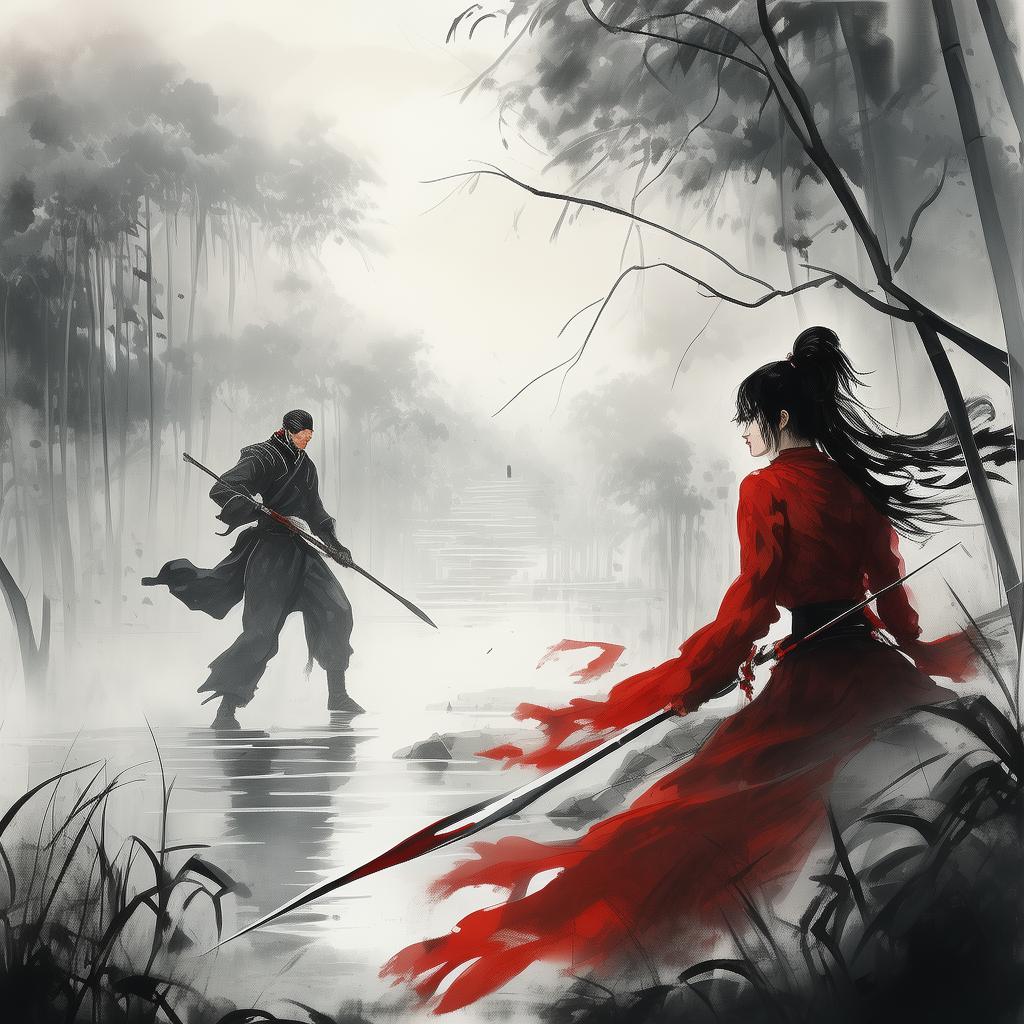The Shadow of the Mountain: A Quest for Redemption
In the rugged mountains of ancient China, there lay a tale of a once notorious outlaw named Feng Yilong. His name was synonymous with chaos and anarchy, a man who had once roamed freely, defying the law and living a life of solitude. But beneath the layers of his fierce exterior, a heart yearned for peace and redemption.
The story begins on a crisp autumn morning, as Feng Yilong stood before the ancient, towering mountain that had once been his sanctuary. It was there, amidst the whispering winds and the echoes of his past, that he vowed to embark on a journey to enlightenment. The mountain, with its majestic silhouette, had become a symbol of his inner turmoil and the path to his salvation.
Feng Yilong's journey was fraught with challenges. The first obstacle was his own shadow, a metaphor for the darkness within him. He was haunted by memories of his past, where his actions had caused pain and suffering to those he once called friends. The mountain, a place of solitude, became his confidant, his silent judge, and his guide.
As he journeyed deeper into the mountains, Feng encountered a diverse array of characters. There was the wise old monk, who taught him the ways of tranquility and the importance of forgiveness. The monk spoke of the interconnectedness of all life and the need to let go of past grievances. "The mountain is a mirror to your soul," the monk would say, "and only through self-reflection can you find your true path."
Another character was a young woman named Li, who had been forced into a life of servitude by the very man Feng had once called a brother. Li's eyes held the pain of betrayal, and her story served as a stark reminder of the consequences of his actions. Despite her suffering, Li's spirit remained unbroken, and her resilience inspired Feng to confront his own demons.

The journey was not without its dangers. Feng faced off against bands of bandits and corrupt officials, all remnants of his past life. Each confrontation tested his resolve, and he was forced to question whether he was truly ready to let go of his violent ways. It was during these battles that Feng realized the true power of martial arts—its ability to transform and to heal.
As the seasons changed, Feng's physical and emotional strength grew. The mountain's beauty and its serene atmosphere became a sanctuary for his soul. He began to understand the balance between strength and compassion, between life and death. The martial arts he had once used to kill and to survive were now tools for protection and for peace.
The climax of his journey came when Feng was confronted by his former mentor, the man who had introduced him to the world of martial arts. This mentor, now a corrupt official, had turned his back on Feng, using his teachings for his own gain. In a fierce battle, Feng was forced to confront the man who had once been his guide. It was a battle of ideologies, of the path he had chosen versus the one he had abandoned.
In the end, Feng defeated his mentor, not through brute force, but through the martial arts he had learned and the enlightenment he had gained. He forgave his mentor, understanding that the path to redemption was not just about defeating one's enemies, but about forgiving oneself.
The journey to the mountain's peak was arduous, but Feng reached the summit, his heart and mind at peace. He looked out over the vast expanse of the land, the mountains stretching out to the horizon. The mountain had been his teacher, his guide, and his savior. In that moment, he felt a profound sense of fulfillment and redemption.
As Feng descended the mountain, he knew his life would never be the same. He had found his path, a path of compassion and understanding. He would return to the world, not as an outlaw, but as a man who had learned the true meaning of martial arts and the power of forgiveness.
The Shadow of the Mountain: A Quest for Redemption is a story of transformation, of a man who learns that the path to enlightenment is not just about physical strength, but about the strength of character and the courage to face one's inner demons. It is a tale that resonates with the universal themes of redemption, forgiveness, and the power of change.
✨ Original Statement ✨
All articles published on this website (including but not limited to text, images, videos, and other content) are original or authorized for reposting and are protected by relevant laws. Without the explicit written permission of this website, no individual or organization may copy, modify, repost, or use the content for commercial purposes.
If you need to quote or cooperate, please contact this site for authorization. We reserve the right to pursue legal responsibility for any unauthorized use.
Hereby declared.









